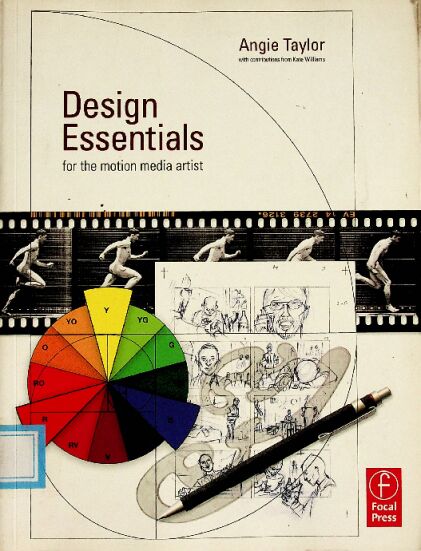书名:Design essentials for the motion media artist
责任者:Angela Taylor. | Taylor, Angie.
出版时间:2011
出版社:Focal Press,
摘要
Master the fundamental concepts and techniques of motion media design so you can apply--and occasionally break--the rules to achieve your communication goals. This authoritative guide presents all of the design essentials in an engaging and inspiring way. Each principle is explained with text, illustration and photography where necessary.
查看更多
目录
Foreword xi
Acknowledgments xvii
Introduction xix
Chapter 1 Drawing 1
Synopsis 1
Learning to See 2
Why Sketching Is Important 2
Can Anybody Learn to Draw? 3
The Universal Fallacy of "Talent" 4
Motivation 5
Drawing Materials 6
Other Drawing Aides 13
Lessons 14
Recap: Practice Makes Perfect 44
Inspiration: Rachel Max, Designer and Animator 44
Chapter 2 Planning 49
Synopsis 49
Inspiration 50
The Design Process 51
The Preparation Stage 52
The Development Stage 63
TheTesting Stage 87
The Delivery Stage 87
Time Management 88
Some FinalThoughts 93
Recap 94
Inspiration:Temple Clark, Storyboard Artist 94
Chapter 3 Composition 99
Synopsis 99
The Elements of Composition 100
Arrangements of Composition 105
Principles of Composition 124
Gestalt 128
Copying Other Designs 133
Recap 133
Inspiration: Malcolm Garrett, Graphic Designer 134
Chapter 4 Animation 143
Synopsis 13
The History of Animation 144
Animation Terms 146
Animation Types 151
The Laws of Physics 154
The Rules of Animation 157
Applying the Rules 164
Recap 171
Inspiration: Madeleine Duba, Animator 172
Chapter 5 Type 177
Synopsis 177
Inspiration 177
What IsTypography? 178
The Origins ofType 179
Fonts 181
Understanding Typefaces 184
The Classics 187
Choosing Typefaces 189
Comparing Typefaces 190
Buying Typefaces 191
A Practical Exercise 193
The Anatomy of Type 194
Spacing 197
Legibility and Readability 209
Drop Caps 209
Hierarchies of Information 209
Software Recommendations 210
Handmade and ExperimentalType 213
Typography for the Screen 215
Color and Luminance 215
Character Properties 216
Recap 217
Inspiration: Robert Hranitzky, Motion Graphics Designer 217
Chapter 6 Color 223
Synopsis 223
Introduction 224
Inspiration 225
Color Perception 227
Color and Meaning 230
The Artist's Color Model 235
ColorTheory 238
Digital Color Models 246
Hue, Saturation, and Brightness 248
Making It Work 253
Adjacent Colors 253
Color Blindness 254
Color Difference 254
Color Rhythm 255
Color and Temperature 255
Color Management 257
Recap 261
Inspiration: Richard Walker, Artist 262
Chapter 7 Editing 267
Synopsis 267
A Brief History of Video Editing 267
The Principles of Editing 269
Editing Applications 280
Tools 283
Inspiration: Joost van der Hoeven, Motion Graphic Designer and Editor 288
Chapter 8 Communication 293
Synopsis 293
Visual Communication 294
Communication with People 300
Communicating with Clients 304
The Communication Process 307
Networking 312
Presenting Yourself 316
Recap 318
Inspiration: Steve Caplin, Graphic Designer and Author 318
Chapter 9 Technical 321
Synopsis 321
Introduction 322
Video Formats 324
Widescreen 333
Digital Video Platforms 337
Channels 344
Transparency 348
Recap 354
Inspiration: Birgitta Hosea, Artist 355
Bibliography 359
Index 363
查看PDF
查看更多
作者简介
Angie Taylor is currently the creative director of Gridiron Software. During her 14-year career as an animator and motion graphic designer, Angie has produced animation, motion graphics, and visual effects for a variety of clients, including music video director Chris Cunningham, musician Beck, the BBC, and Channel 4 television in the United Kingdom. Angie works regularly with software companies like Adobe and Apple, giving software demonstrations and delivering conference seminars at key industry events like Macworld, NAB, and IBC.
查看更多
馆藏单位
中科院文献情报中心



